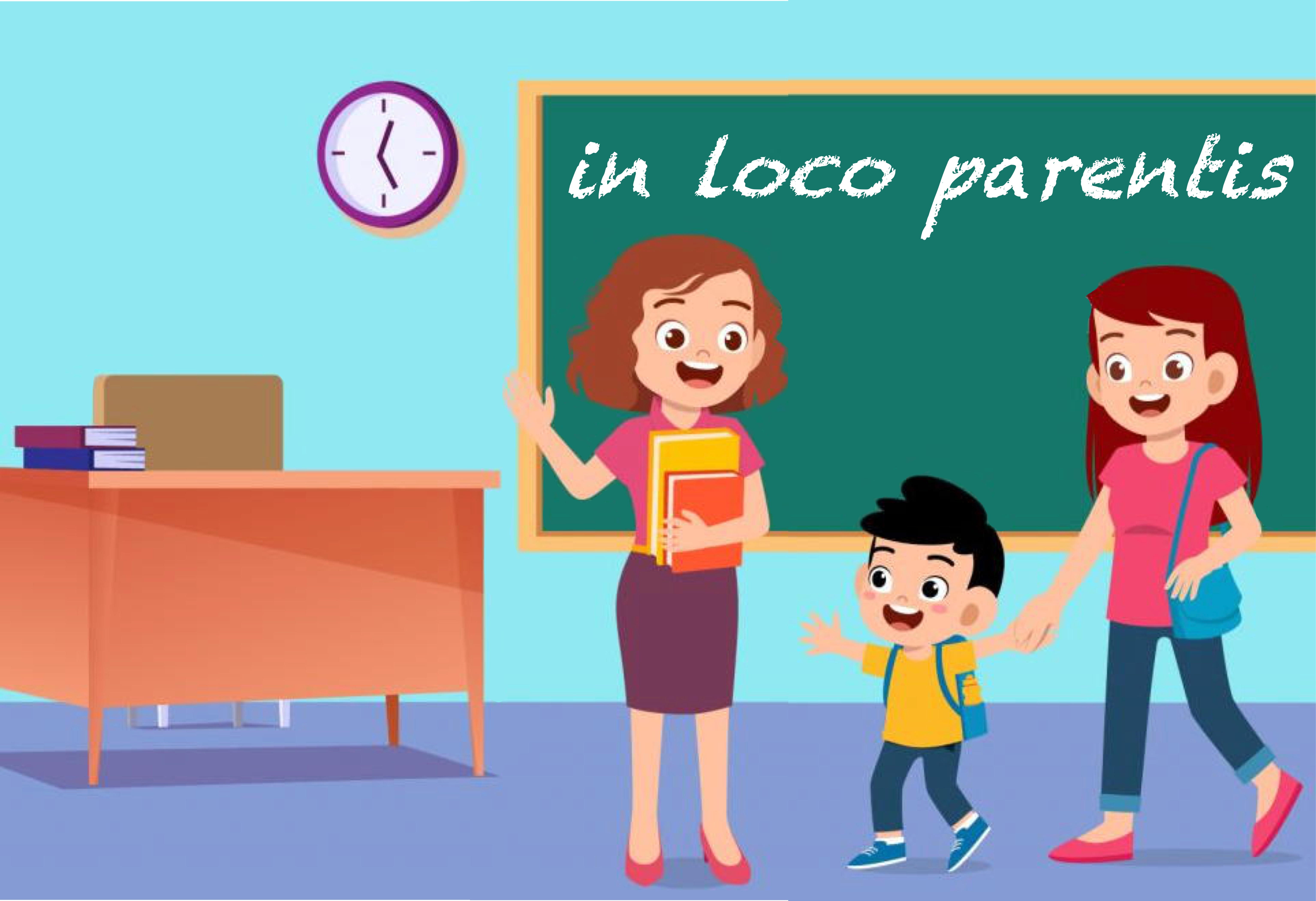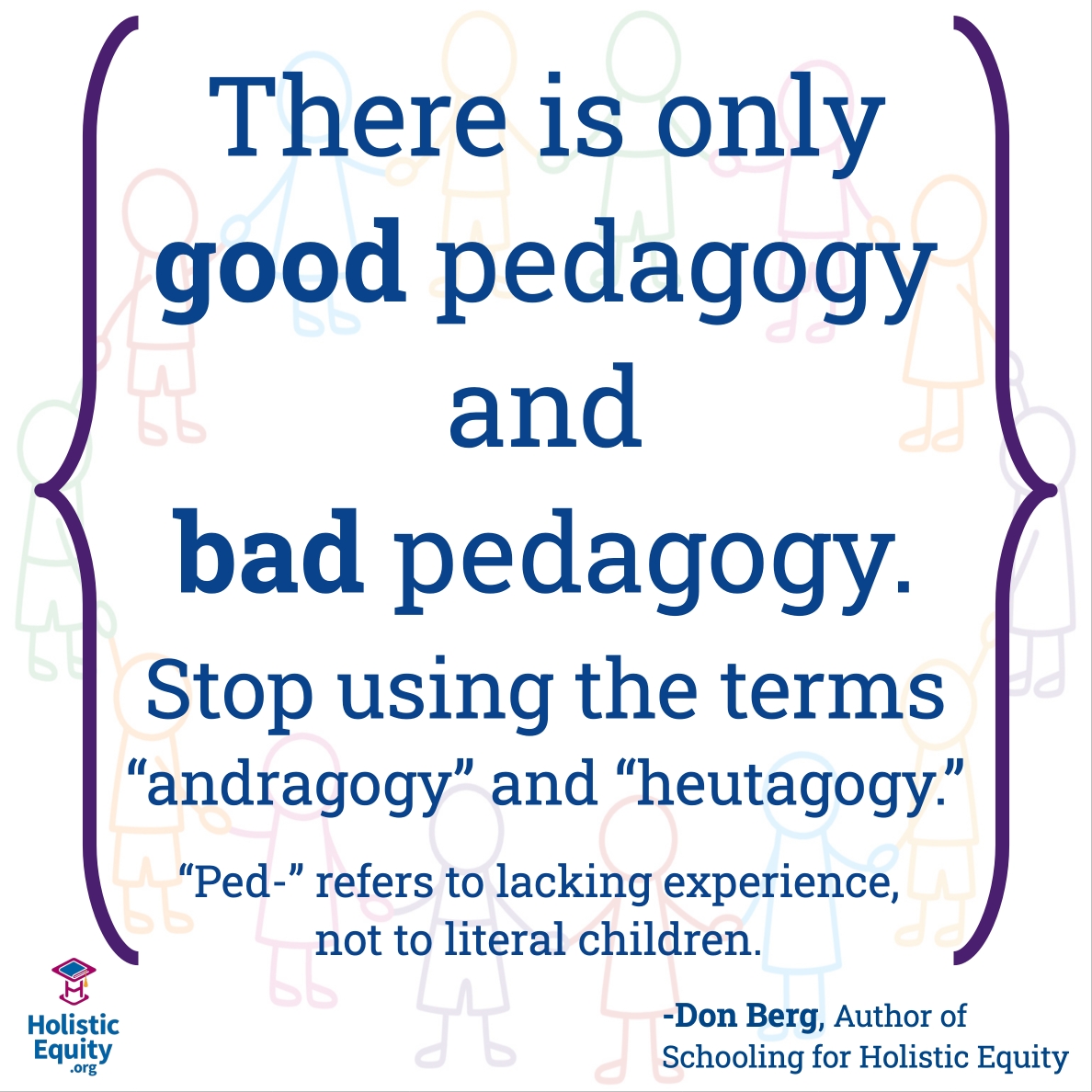Clarifying In Loco Parentis:
The Duty of Care Schools Owe to Students

In loco parentis is a long established legal principal that obligates school personnel to take care of their students’ well-being in a reasonable manner.
In Sir William Blackstone's compilation of English law from 1770 he made it clear that the “exercise of power [by a tutor or school master] is limited to what is ‘necessary to answer the purposes for which he is employed.’” (p. 271, Zirkel & Reichner, 1986)
“[T]he courts have accepted with relative ease the notion that in loco parentis gives rise to duties as well as rights of educators.” (p. 281, Zirkel & Reichner, 1986)
“The status of a parent, with some of the parent's privileges, is given a school teacher by law in aid of the education and training of the child…” (Guerrierri v. Tyson, 1942)
“We are not here concerned with the law applicable to punishment of a pupil by a teacher; but rather with the law applicable to the duties of a teacher in the care and custody of a pupil. In the faithful discharge of such duties the teacher is bound to use reasonable care….” (Gaincott v. Davis, 1937)
There are a variety of ways that a school institution cannot act like a parent and the law carves out limitations and deviations accordingly.
But the foundational principle of in loco parentis is that parents are responsible for ensuring the well-being of their child AND when they entrust their child to school personnel that makes them into caregivers who are likewise obligated to support the child’s well-being.
Spelling Out In Loco Parentis for Schools
Let’s examine some details of the duty of care that schools owe their students based on the logical implications of scientific findings that are not yet explicitly established in the law (based on a portion of Chapter 1 from the book The Agentic Schools Manifesto, 2024).
No reasonable parent (or government) would send their child to a school that suffocates, starves, dehydrates, or recklessly exposes their students to the elements.
Such a school would never be allowed to exist because it is both immoral and educationally impractical, plus it clearly violates the legal principle that schools are obligated to act in loco parentis.
For both educationally pragmatic and moral reasons the in loco parentis duty of care K-12 schools owe their students includes supporting the psychological well-being of children.
Below are a series of statements related to that obligation.
1.0- Learning is facilitated by well-being.
1.1- Learning is compromised by ill-being.
1.2- Air, water, food, and shelter are each a direct, physiological, and universal cause of human well-being across all ages.
- 1.2A- While a student’s need for food can be satisfied by parents at home and by sending it from home, the need for air must be satisfied in real time at school.
1.3- Sleep, as well as the perceptions of relatedness, autonomy, and competence are each a direct, psychological, and universal cause of human well-being across all ages.
- 1.3A- While a student’s need for sleep can be satisfied at home, a student’s other psychological needs must be satisfied in real time at school, like the need for air.
- 1.3B- According to decades of careful scientific research within the tradition of Self-Determination Theory, neglecting or thwarting a person’s psychological needs for relatedness, autonomy, and competence will cause their motivations to be more controlled (rather than autonomous) and persistently having more controlled motivations causes disengagement.
- 1.3C- Persistent controlled motivations and disengagement are evidence of compromised psychological well-being.
- 1.3D- When a person's psychological needs are satisfied their motivations are more autonomous and when motivations are more autonomous their engagement becomes agentic (not merely behavioral); “cultivating agency” is shorthand for facilitating agentic engagement
1.4- Learning occurs as long as humans are alive and awake.
- 1.4A- Shallow learning is the default, while deeper learning is an achievement.
- 1.4B- Learning is deeper when a learner’s mind is sufficiently open to reorganize their conceptual models of the world and their self, how they each work, and how they interact with each other.
- 1.4C- When a learner's engagement is agentic that indicates their mind is open to the possibility of learning deeply.
1.5- Providing instruction is but one of many possible forms of support for learning.
-1.5A- Reasonable care requires the eight direct causes of well-being (listed in 1.2 and 1.3) to take practical precedence over instruction, independent of any and all rhetorical stances (e.g. back-to-basics, college preparation, science of reading, workforce development, etc.) that might say or suggest otherwise.
- 1.5B- The term “school” must refer to some form of institutional support for learning.
- 1.5C- School is a societal institution for facilitating access to educative experiences and deeper learning.
- 1.5D- Due to the duty of care established by the legal principle of in loco parentis, academic instruction can only be offered in a manner that is consistent with the establishment and maintenance of well-being (with acknowledgment that this involves mitigating compromises to well-being that are caused by factors beyond the school’s control).
- 1.5E- Alleviating negative psychological pressures on students and teachers in a school might entail making academic instruction optional.
2.0- Educating children is about cultivating agency, not accumulating content knowledge, skills, nor information as appears to be assumed in the mainstream paradigm.
2.1- An educated person is someone who perceives accurately, thinks clearly, and acts effectively on self-selected goals and aspirations that are relevant to their circumstances as they mentally map their world and how it works without necessarily being aware that any of that those things are going on.
2.2- Persistent autonomous motivations and agentic engagement are evidence that experiences are educative.
2.3- A person has achieved an education when they have at-will access to states of mind that are neutral to positive, independent of the situation within which they find themselves located.
2.4- An educative experience does not always involve deeper learning, but a non-educative experience is necessarily limited to shallow learning.
2.5- Education is also the entire collection of societal support systems for creating educated people of all ages, which is not limited to schools nor to families.
3.0- Schools MUST nurture their students, that is, cultivate their psychological well-being.
3.1-The hidden curriculum is how brains interact with policies (both stated and unstated) to impose limitations on what can happen in school (and all other types of groups and organizations, as well).
3.2- A hidden curriculum that undermines deeper learning and/or creates barriers to educative experiences violates the duty of care established by the legal principle of in loco parentis and calls into question whether the organization under consideration deserves the label of “school.”
3.3- Schools that aspire to achieve a catalytic pedagogy in which students and teachers are nurtured must rely on measures of primary psychological need satisfaction collected anonymously as evidence of whether or not they are successful.
In Loco Parentis is the Floor, not the Ceiling
To be clear, we take the well-being that follows from basic psychological need satisfaction to be the necessary, but not sufficient, foundation for educational achievement to build upon.
Just in case you are not familiar with the phrase “necessary, but not sufficient” it refers to the relationship between a set of prior conditions that might be contributing to a resulting condition.
Let’s be more concrete as we consider the logic of that phrase.
If having a seat is a necessary, but NOT sufficient condition for an object to be a chair that means the you don’t have a chair unless you have a seat, but also that in order for that object to be a chair it must have some other properties/features, like having some means for the seat to be off the ground, such as legs.
On the other hand, if X were a necessary AND sufficient condition for Y then having X produces Y without any other conditions being met.
The central point I am making here is about ensuring basic well-being, not about attaining the heights of educational excellence.
This is the floor of expectations, not the ceiling of aspirations.
To put my assertion in another way, a child who has their needs persistently neglected or thwarted will have ill-being that prevents the deeper learning our society needs schools to produce.
Also, a child who has their needs satisfied has well-being, but having well-being is also not enough to produce the deeper learning that is necessary for success in today’s world.
Other conditions are also necessary to produce deeper learning.
Academic instruction MIGHT be one of those conditions for some children.
Some children will benefit from other forms of learning facilitation.
In any case, ALL children benefit from well-being which is necessarily produced by having their primary psychological needs satisfied.
Another important caveat is that providing access to professional mental health services is beside the point.
It was argued in The Columbia Undergraduate Law Review in 2017 that, “Following [the doctrine of in loco parentis], schools must integrate mental health resources into public schools.”
The argument here is much simpler and does not require mental health professionals.
According to philosopher of education Virginia Worley, “Although teachers’ in loco parentis charge was originally imported into America through Blackstone’s Commentaries on the Laws of England (1765) as a responsibility and protection for teachers feeling the need to administer corporal punishment, when that charge entered school law, it included all three duties Blackstone assigns to parents and transfers to teachers: maintenance, protection, and education.”
The fundamental parental duty to ensure the well-being of children requires that their primary human needs for relatedness, autonomy, and competence be satisfied.
This mandate falls under Blackstone’s maintenance duty and is necessary, but not sufficient for fulfilling a teacher’s education duty.
Supporting those needs can be easily accomplished by showing interest in the child, acknowledging their thoughts, preferences, and emotions, and enabling them to develop skills that are relevant to their current life situation and interests.
None of those behaviors require professional training nor do they directly impact instructional expertise; they are simple ways that normal parents have interacted with their children since time immemorial.
Presuming that the numbered statements above are all correct means that many schools are not meeting their obligations under the in loco parentis doctrine.
There is not a lack of desire to do so, but rather bureaucratic impositions interfere with teacher’s nurturing instincts and normal human interactions.
Most schools will not even be able to assess how well they are complying with that doctrine because most schools do not have appropriate climate measures.
Properly assessing this situation and acting to change or maintain the results requires two forms of climate assessment, formative and summative.
An initial assessment is probably best done through a summative measure that is based on Self-Determination theory or a substantially similar model.
Summative measures that appear to be appropriately constructed include the Hope Survey and the School Climate Assessment Instrument from the Alliance for the Study of School Climate.
The Youth Truth system can likely be adapted by incorporating appropriate items from SDT or other equivalent measures.
There do not appear to be any formative climate assessments, so I created a prototype called the Instant Climate Formative Assessment tool.
Instant Climate is only for internal school use, so using a commercially distributed summative climate measure is also recommended.
In conclusion, in loco parentis is the legal principle that school personnel are obligated to nurture the children in their care.
The doctrine has not yet been explicitly extended to include the support of children’s psychological needs, but given the clear science behind it, that is just a matter of time.
If you are a school leader and would like to ensure you are meeting your in loco parentis obligations without facing a legal challenge, I would like to help.
Get in touch so that we can talk about how you and your colleagues can support the psychological needs of your students.
For a further exploration of this issue check out my call for Calming the Anxious Generation.
References
Berg, D. (2024) The Agentic Schools Manifesto. Attitutor Media. West Linn, Oregon.
Gaincott v. Davis, 281 Mich. 515, 519, 275 N.W. 229, 231 (1937).
Guerrierri v. Tyson, 147 Pa. Super. 239, 241, 24 A.2d 468, 469 (1942).
Kytzidis, P. (2017, August 30). “In Loco Parentis: The role schools must play to provide mental health resources,” Columbia Undergraduate Law Review. https://blogs.cuit.columbia.edu/culr/2017/08/30/in-loco-parentis-the-role-schools-must-play-to-provide-mental-health-resources/
Worley, Virginia (2003). The Teacher’s Place in the Moral Equation: In Loco Parentis. Philosophy of Education 59:280-282. DOI: 10.47925/2003.280
Zirkel, P.A. and Reichner, H.F. (1986) "Is the Loco Parentis Doctrine Dead," The Journal of Law and Education 15:3, Article 4.
This article was printed from HolisticEquity.com


